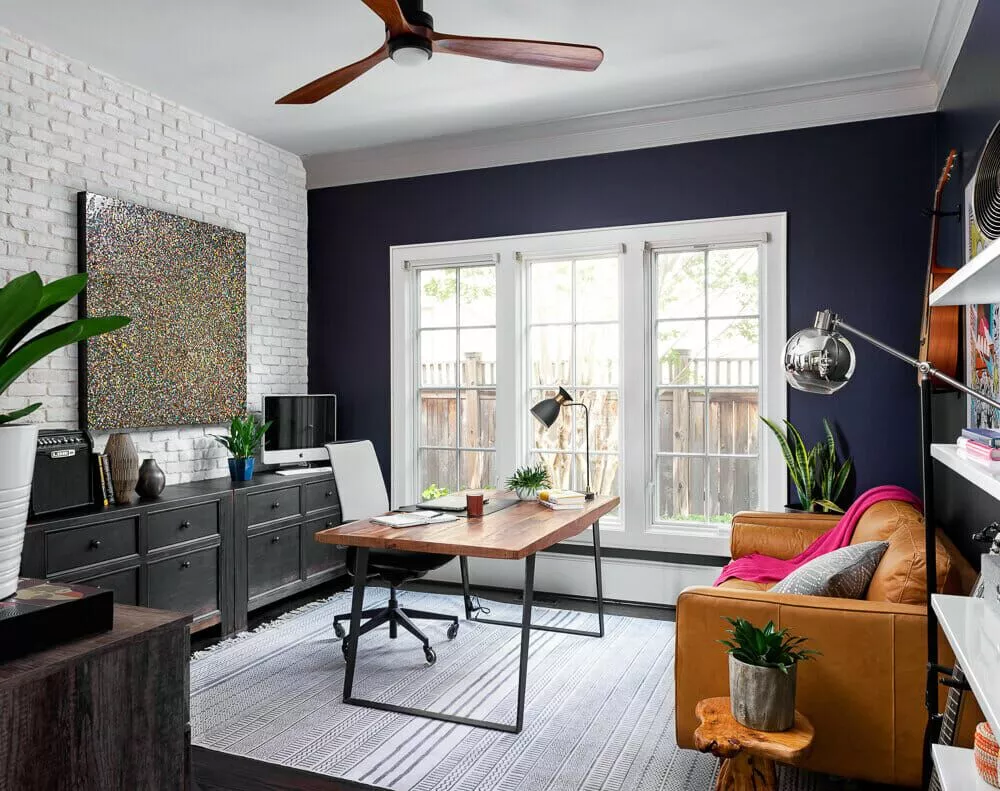Most students struggle with college because they cannot keep up with hectic schedules and many assignments. Not only will you encounter multiple projects with tight deadlines, but you will also need to create time to study for important tests. According to experts, creating a conducive study environment will help with better time management and result in positive academic outcomes. Here are more reasons why college students need a conducive learning environment.
Contents
- 1. Helps You Get in the Zone
- 2. You Get All Your Resources in One Place
- 3. You Enjoy a Controllable Environment
- 4. You Enjoy Better Knowledge Retention
- Tips for Designing and Organizing a Study Room
- 5. Consider the Availability of Fresh Air and Natural Lighting
- 6. Avoid Distractions
- 7. Promotes Consistent Study Routine
- 8. Reduces Procrastination and Increases Productivity
1. Helps You Get in the Zone
Whether studying in traditional in-person settings or online arrangements, remaining focused and motivated is one of the most serious challenges you can face. College can be overwhelming if you try to maintain good grades, keep a part-time job, and balance social relationships. Most people get distracted by their phones, text messages, and push notifications. Friends and close ones can also be a distraction when working on an important task at the last minute.
Dedicated study space can be crucial to minimizing distractions and creating a stimulating learning environment. According to research, students of all ages benefit from a dedicated study space. When properly set up with the right elements, a study space will help your mind relax and get in the zone. Getting into this space also allows you to plan how long you intend to study and organize a study routine. Most importantly, evidence also shows that studying in a dedicated space is linked to better memory recall than studying in living rooms or bedrooms.

Source: movingproz.com
2. You Get All Your Resources in One Place
Another notable benefit of having a dedicated study space is getting all the materials you need in one area of your home or room. According to experts, students should design their study spaces by considering all the tools and resources they need daily for their academic undertakings. For instance, your study space should be quiet and not prone to too much disturbance.
Also, consider the availability of proper lighting and comfortable seating. When you organize your material well, you get to save time that you would have spent looking for pens, notes, and other study items. Don’t panic if you have no idea how to work on your assignments. You can engage an online essay writer service and get top-notch work on time.
3. You Enjoy a Controllable Environment
Another benefit of having a study environment is that you can control the factors and design the area according to your preferences. As a student working in a dedicated study space, there is the freedom to manage the space concerning seating, lighting, sound, and temperature. This control allows the student to create a personal environment that supports optimal learning. Those who take breaks while studying can also think about stress relief tools like a whiteboard and a stress ball.

Source: mciinstitute.edu.au
4. You Enjoy Better Knowledge Retention
Another important benefit of having a dedicated study room is that it allows you to focus and improves your concentration. When you have few distractions eating into your time and stealing your concentration, you can expect to grasp concepts quickly and effectively. Evidence shows that studying frequently in short periods boosts memory retention and allows students to learn faster. A controllable study environment also increases focus and allows students to make sense of the information without needing guidance or assistance.
Tips for Designing and Organizing a Study Room
As a college student, you may not always be in the mood to study, and that’s perfectly fine. However, given the number of assignments to complete and exams to prepare for, you must find ways to stay motivated and inspired. A dedicated study room triggers a motivation to study and has been shown to have amazing effects on academic performance. Here are a few tips to help you design and maintain your study space.

Source: decorilla.com
5. Consider the Availability of Fresh Air and Natural Lighting
You must be comfortable in your study space, so fresh air and natural lighting are critical. If possible, choose a room with open windows and sunlight. Windows allow fresh air and light to go into your room, allowing your mind to concentrate on the intended learning during the study session.
6. Avoid Distractions
Your study space should be clean and free from distractions. Choose an area in your house with minimal traffic and ask your friends and loved ones not to disturb you when in your study area. Also, eliminate clutter from your study space since evidence associates clutter with diminished concentration and poor learning outcomes.

7. Promotes Consistent Study Routine
Creating a special area for studying brings structure to your learning process. Your mind forms a powerful link between this space and concentrated academic work. This connection significantly aids in establishing a regular study regimen. In this dedicated space, your mind learns to shift into learning mode automatically, which is particularly beneficial during bustling college days.
Over time, this habit improves your capacity to stick to specific study times. It helps your mind adjust to a set study timetable, enabling better time management. Entering this space signifies your commitment to learning, boosting your motivation to tackle academic work. It helps balance studies, extracurriculars, and personal time, leading to better academic results and less stress.
8. Reduces Procrastination and Increases Productivity
A dedicated study space is a potent cue to start studying. As you step into this area, your mind understands it’s time for academic work, reducing procrastination. This mental cue aids in overcoming a common hurdle among students – procrastination. A designated study space, being free from distractions, discourages wasteful habits.
In such an environment, you can concentrate better, enhancing your productivity. Your focus improves, and you can grasp complex ideas more readily. The commitment linked to your study area encourages a purposeful learning approach, fueling your determination to meet your academic goals. Consequently, you’ll be more prepared for exams and witness noticeable improvements in your overall academic performance.

Source: greatist.com
The Bottom Line
Study rooms are quickly gaining popularity for their several advantages to students. According to research, study rooms boost concentration and motivation and make learning interesting. Study rooms also minimize distractions. Keep your space tidy and clutter-free.
